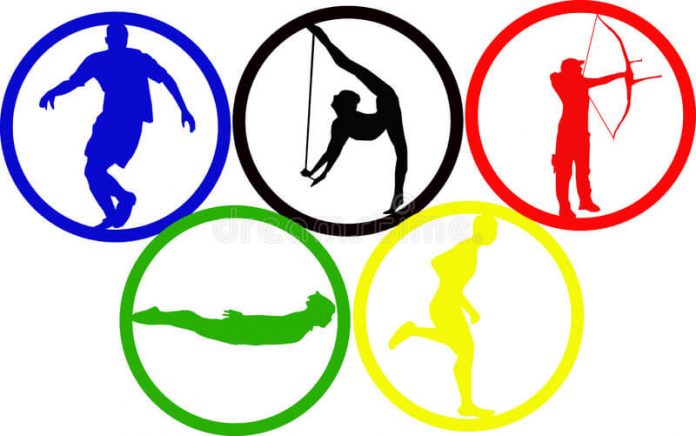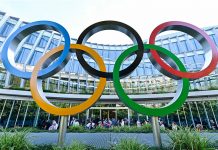This article is written by Anindita Deb, a student of Symbiosis Law School, Noida. This article aims to discuss the legal provisions that guide the glorious event of the Olympic Games that is organized every 4 years.
Table of Contents
Introduction
The closing ceremony of the Tokyo Olympics took place on 8th August, 2021, a year later than was originally planned. While athletes worldwide bagged medals and made their countrymen proud, it is important to acknowledge that an entire legal framework is at play behind this most awaited event. This article aims to describe the legal provisions that ensure the efficient functioning and success of the Olympic games.
The Olympic Charter: law behind the Olympics
The Olympic Charter (OC) is a codification of fundamental principles of Olympism, as well as the regulations and bye-laws adopted by the International Olympic Committee (IOC). It establishes the conditions for the Olympic Games to be held and governs the Olympic movement’s organization, actions, and functioning. It establishes relations between the International Federations, National Olympic Committees, and the Olympic Movement, among other things.
Annuaire du Comité International Olympique was the title of the first edition of the Charter, which was issued in 1908. However, some of the rules of this initial Charter were created by Pierre de Coubertin in the year 1898. The Olympic Charter currently in force was approved on 8th July, 2011.
The text of the OC contains a body of legislation made up of 61 rules, with 27 bye-laws that serve as glosses and annotations to those rules. The scope of the OC is further defined in the Introduction, by referring to the three main purposes that the OC strives to serve:
A basic constitutional instrument that governs and recalls the Olympic Games’ Fundamental Principles and essential values
Because the OC is the Olympic Movement’s basic fundamental document, the main objective behind its formation is to act as a governing framework for the other rules which, in a sophisticated and complete form, assumes transcendent jurisdiction over in the universe of sport, we can compare it to a Constitution. We can also find other parallels with a Constitution:
- The OC is fundamental or constitutive in nature.
- It establishes a set of essential ideals and principles that govern a specific type of organisation, in this case, the global organisation of sport;
- The OC aims to provide a stable and long-lasting quality to the governing regime by making OC amendments an exceptional circumstance that mandates a two-thirds qualified majority; and
- The OC blends a programmatic discourse with obligatory regulations.
The statutes for the IOC
The IOC statutes are comprised or encompassed by the OC, which is the document controlling the IOC’s internal organisation.
Defining the constituents’ reciprocal rights and obligations
The Olympic Charter defines the main reciprocal rights and obligations of the three main constituents of the Olympic Movement: the International Sports Federations (IFs), and the National Olympic Committees (NOCs), as well as the Organising Committees for Olympic Games (OCOGs). The OC resembles a contract in terms of establishing the rights and obligations of the OM’s main constituents.
Legal nature of the Charter’s contents and the powers it embraces
The OC is a composite legal text in terms of content, with general principles sitting alongside more technical regulations, such as coercive rules and simple standards of behaviour. The OC also establishes the concept of “ownership” of the Olympic Games (OG) by mixing public law norms – such as those relating to a country’s sole competence to represent it – with private-party relationship rules.
The OC embraces executive, legislative and judicial powers.
The procedure for selecting a city to host the Games is the most notable in terms of executive powers (see Bye-law to Rule 33(3) of the OC, – Election of the host city – Execution of Host City Contract).
In terms of legislative powers, we’re talking about the power to change the text of the OC itself, as defined in Rule 18(3), under the heading Session.
Finally, the OC is bestowed with judicial powers, as provided by Rule 59, under the heading Measures and Sanctions, which grants powers to IOC bodies – the Session and the Executive Board along with Disciplinary Commission, to which the Executive Board may delegate powers, to punish breaches of the OC, the World Anti-Doping Code, or any other guideline, as the case may be.
It can be stated that if the OC claims and obtains a universal legal character, it arises by virtue of moral authority, an extra-legal element, such as the OG’s social, economic, and sports magnitude, rather than its legal nature. The OC’s external authority is founded on affiliation or voluntary recognition by those who submit to it, i.e., a diverse community of individuals, groups, and organisations of all kinds, be they states, NOCs, International Federations (IFs), or others.
The International Olympic Committee (IOC)
The International Olympic Committee as the most relevant constituent of the Olympic Movement
The Olympic Movement, according to the OC’s Third Fundamental Principle of Olympism, is the concerted, organised, global, and permanent action of all individuals and entities who are inspired by the values of Olympism carried out under the supreme authority of the IOC. It spans the globe’s five continents. It achieves its pinnacle with the uniting of the world’s athletes in the Olympic Games, the world’s greatest sports festival. Its symbol is five interlaced rings.
The 7th Fundamental Principle expresses unequivocally that belonging to the Olympic Movement involves compliance to the Olympic Charter and IOC recognition.
The Olympic Movement covers organisations, athletes, and other persons who agree to be led by the Olympic Charter, according to Rule 1(1) of the OC. The Olympic Movement’s mission is to educate youth through sport in accordance with Olympism and its principles in order to contribute towards the building of a peaceful and better world.
The provisions of the OC give special and methodical consideration to the three most essential parts or pillars of the OM, including their mission, role, legal nature, and modes of cooperation between them.
The legal nature of the IOC
For decades, there was ambiguity about the legal nature of the IOC, until the need to clarify the issue became essential.
This wording raised the possibility of a misunderstanding that the IOC possessed international legal personality, which was bolstered by:
- The OC’s authority over states;
- The large number of contracts signed between the IOC, UN organisations, and even states; and
- The IOC’s ability to file claims against international organisations.
As a result, the rule had to be revised to eliminate ambiguity. As a result, several years later, in 1991, the (the) Rule 19 of the OC attempted to clarify the IOC by defining it as an international non-governmental non-profit institution, organised as an organization with legal personality, sanctioned by a Swiss Federal Council order dated September 17, 1981.
Rule 15(1), albeit updated, in the present version of the OC states something nearly similar: The International Olympic Committee (IOC) is an international non-governmental not-for-profit organisation with an indefinite existence, established as an organization with legal character, and recognised by the Swiss Federal Council in conformity with an agreement signed on November 1, 2000.
Above all, the IOC is an international organisation (not to be confused with an international organisation in the legal sense of the term) which can be explained not only by the diversity of nationalities among its members and the OM’s constituents, but also by its worldwide vocation, which might be regarded as a quasi-public service mission within the international legal system, through humanist and ethical missions, formed in collaboration with, or with the approval and recognition of, states and intergovernmental organisations. Indeed, the Swiss Federal Council gives recognition to the IOC’s operations having global scope and emphasises the IOC’s universal significance in international relations as well as its international fame.
Second, the International Olympic Committee is a non-governmental organisation. It could not be described any other way because the Olympic Charter – adopted and changed by an IOC body – is the IOC’s founding document, which is not based on any international or intergovernmental treaty, convention, or agreement. Furthermore, the IOC’s logic is founded on its independence from government intervention, and it has never sought consultative status at the United Nations (UN), despite the fact that the possibility has been raised and the IOC meets the requirements for such status, precisely because it intends to retain complete autonomy vis-à-vis international governmental organisations.
An additional feature of the IOC’s legal status is that it has legal personality under Swiss law, which is granted by Article 56 of the Swiss Federal Constitution, which guarantees freedom of association, and Articles 52 and 60 of the Swiss Civil Code, which deal with legal personality and associations, respectively. Since its registered office and principal place of business are in Lausanne, Switzerland, it is governed by Swiss domestic law and derives its rights and obligations from that law.
A reference to the accreditation of the IOC by the Swiss Federal Council is highlighted in Rule 15(1) of the OC.
For the facts stated with regard to concerning the IOC’s legal status, there appears to be no dispute that the IOC’s legal recognition and privileges were conferred unilaterally by the Swiss Federal Council, which further supports the interpretation of the IOC not being a subject of public international law.
Conclusion
To sum up, today’s Law and Olympic Games are both necessary and inextricably linked realities. In fact, the OG’s existence is predicated in large part on accepting and comprehending something that is already unavoidable or irrefutable: a strong body of Olympic rules that can be interpreted clearly and used freely but mandatorily. The Olympic Charter, which embodies executive, legislative, and judicial powers, assumes a supreme jurisdiction and centrality in a process of “destratification” of the Olympic legal framework in a legal pluralism in which various legal systems coexist and seek to coexist – bilateral and multilateral state legislation on the one hand, and the Lex Olympica on the other.
A good set of Olympic regulations, of course, necessitates strong and powerful institutions. The IOC emerges as the most dominant institution of the OM, according to this report. The conservation of ethics, the environment, and equality, as well as involvement in humanitarian efforts, are among the IOC’s main concerns.
In conclusion, the Olympic Charter’s legal and extra-legal authority, as well as the IOC’s inherent power, is evident.
References
- https://library.olympics.com/default/olympic-charter.aspx?_lg=en-GB
- https://ddd.uab.cat/pub/worpap/2013/181101/mestre_eng.pdf
- https://olympics.com/ioc/olympic-charter
LawSikho has created a telegram group for exchanging legal knowledge, referrals, and various opportunities. You can click on this link and join:
 Serato DJ Crack 2025Serato DJ PRO Crack
Serato DJ Crack 2025Serato DJ PRO Crack










 Allow notifications
Allow notifications


